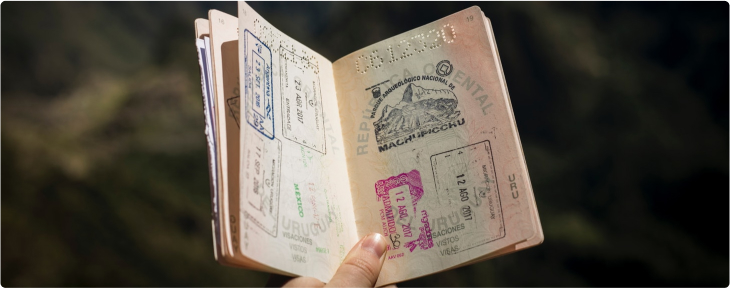We are experienced immigrants who have already helped many people from around the world move to New Zealand, Australia, and Canada. We truly want to make your journey to your dream country easier, so we’ve prepared a checklist to help you plan your immigration. These are the tips we wish we could have given our past selves, right when we needed them most.
Some of the points might seem to be quite obvious. However, life has shown, that during preparation for the first immigration even crucial aspects may be left behind, to say nothing of minor details. We recommend making a separate file, a sort of a to-do-check-list, to gather and control all the information more conveniently.

Information about a country
Research the places you’re considering for immigration. This first item on the list may sound obvious, but in reality, people often don’t give this step enough attention. And that’s a mistake. You might end up settling for something easier when, in fact, you had a real chance to move to your dream country. So, start by exploring the countries that truly appeal to you the most. Over time, the best options that match your personal goals and preferences will naturally become clear.
Here are the main criteria we recommend paying attention to:
— Language
— Climate
— Nature and surrounding beauty
— Religious climate
— Political situation
— Safety
— Standard of living and civil liberties
— Society and attitude toward newcomers
— Cost of living and housing (both in absolute terms and relative to income)
— Availability of necessary infrastructure
— Access to healthcare for immigrants
— Cleanliness
— Education (for yourself and your children)
— Naturalization prospects
— Culture
— Sports
Ways of immigration
Don’t hesitate to spend time thoroughly researching the immigration conditions in the countries you’ve chosen. Look into the cost and timeline for obtaining a visa, as well as the prospects of gaining permanent residency and citizenship in the future. Fortunately, there are plenty of resources available in many languages nowadays. However, always double-check everything on the official websites of the immigration authorities of the respective countries, or consult with licensed immigration professionals.
How to immigrate to New Zealand
Work and Business
Of course, you’ll need to understand what kind of work you can do in your new country. How you’ll earn a living. What the potential income is in your field, and how that income compares to the cost of living. For some professions, conditions may vary significantly. For example, builders might be well-paid in one country and underpaid in another. Marketers might be in demand in some places but not in others. Fortunately, there’s plenty of information available online if you know how to search effectively. For instance, in New Zealand, the official Careers website offers insights into employment options and salary ranges.
If you believe your current profession has low “immigration potential,” it may be worth considering gaining a professional qualification in your chosen country. The willingness to study can become both your entry point into a new industry and the foundation of your immigration pathway.
Pets
If you have pets you wish to take to another country, then take into account features of this process in chosen countries. Sometimes brining your pet may become quite complicated and pricy.
Family and parents
Read what awaits your family in a new place. Admission requirements for kindergartens, schools, universities. Think about your parents. Do you plan to take them also? Which possibilities do you have for that?
Move to New Zealand with family and children
Defining the best option
Once you’ve gathered information about countries, possible immigration pathways, and potential job opportunities, you’ll end up with a list of places where relocating is realistic in your particular case. You can explore these options on your own or with the help of professionals. However, always use recommended companies and trusted individuals. And make sure to double-check even their advice.
Budget
After deciding on the country and your immigration pathway, start planning your budget. Once you’ve estimated the total cost of the entire process, multiply that amount by 1.5 – or even better, by 2 – to account for emergencies and unexpected expenses.
Also, keep in mind that when applying for long-term visas, most countries require you to present bank statements to prove that you have sufficient funds to cover your entire stay. Ideally, your financial situation should be as transparent and official as possible, with documents confirming the legal origin of your funds.
Cost of immigration to New Zealand
Language
It’s hard to tell what’s more important for a successful immigration: money or language. Both are equally important.
Once you’ve decided which country you’re moving to, start working hard on the language. The better your language skills are upon arrival, the easier and faster your social adaptation, emotional stability, employment, and everyday comfort will be. Don’t waste time, study the language whenever you can. It will definitely come in handy. Don’t put it off or hope that the language will “just stick” once you’re in the environment. It won’t. You need a solid foundation.
Even if you already have a decent level, remember that in your new country, you’ll encounter unfamiliar accents and unique vocabulary. It’s a great idea to brush up on both professional terminology and everyday slang.
Professional self-realization
It’s worth working on your career in your new country while you’re still in your current one. A lot can be done remotely: upgrade your skills to match the demands of the country you’re moving to, improve your resume, learn how the local job market works, and start monitoring vacancies. Join industry communities, read professional media and forums.
Look for people in your field and start networking—just be careful not to come across as too pushy. The world is full of people willing to help if you approach them respectfully and thoughtfully.
Also, if you don’t have a LinkedIn account, create one. If you do, but it’s outdated or only in your native language, take time to clean it up. In many countries, LinkedIn is a key platform for building professional and business connections.
How to find a job in New Zealand
Healthcare
It’s a good idea to research how the healthcare and insurance systems work in your chosen country before you move.
Take care of your health while you’re still at home—treat any chronic issues, get all necessary dental work done. In developed countries, these services can be significantly more expensive.
Start exercising regularly too. Physical fitness boosts your overall well-being, increases stress resilience, sharpens your mind, and leads to better results in many areas of life.
Contacts and networking
Start building connections in advance. Join chats or online groups where people from your chosen country communicate. Both immigrant communities in your native language and local communities in the language of your future country can be helpful.
Be active and friendly in conversations. Ignore provocations, sarcasm, or negativity. Stay focused on your goals. In your new country, the connections you make can be incredibly valuable, and you may already be building your reputation long before you move.

Documents
Be ready that immigration involves a massive amount of paperwork. You will need many documents. Requirements for notarization and translation can vary from country to country.
Here’s an approximate — and likely incomplete — list of documents you may be asked to provide at different stages:
— Birth certificates for all family members
— Marriage, divorce, and name change certificates
— Diplomas and transcripts
— Employment record books and job contracts
— Official statements from the Social Fund confirming work history and pension contributions
— Income statements
— Tax declarations
— Bank and brokerage account statements proving the legal origin of funds
— Documents for property purchases and sales
— Proof of property ownership
— Military ID (if applicable)
— Powers of attorney
Make sure all documents are up to date and stored securely. It will save you a lot of stress during the immigration process.
Bureaucracy
Plan in advance which matters you need to complete, hand over, or arrange for remote management. For example, financial assets, property, or ongoing obligations. Be aware that laws in your home country can change quickly, so flexibility is important.
For example, at some point it may be wise to sell or gift your property. On the other hand, owning assets in your home country is sometimes seen as a positive factor when applying for a visa, because these are ties to your place of origin.
Close any debts, pay all taxes, and make sure all legal and financial documents are in order to support your absence from the country. This includes setting up powers of attorney if needed, and making arrangements for mail, banking, and any dependent care. A well-organized exit can save you major stress down the line.
Clothes
Closer to your moving date, start thinking about what items you want to leave, sell, or take with you. If you have a lot of belongings, research different shipping and transportation options in advance.
Take the climate of your destination country into account when choosing clothing and footwear. Find out if you’ll need adapters for local power outlets and consider bringing a power strip with your native plug type. Also, you can use multiple devices with just one adapter.
Make a list of any essential medications you need to bring with you. Check how you can get them in your new country. Are they available over the counter, by prescription, or not at all? Bring enough to cover your initial period after arrival.
Finally, take time to understand customs regulations for the items you plan to bring. Some things may be restricted or require special declarations. Preparation will help you avoid unnecessary issues at the border.
Shipment of household goods to New Zealand
Tickets and transit visas

Monitor the most cost-effective and convenient way to the new country for you. Check if you’ll need any transit visas for stopovers along the way. For example, when flying to New Zealand, many people overlook the fact that even a short layover in Australia requires a transit visa. This can catch you off guard and cause issues at the airport if not arranged in advance.
Always review the visa and entry requirements for all countries on your route, not just your final destination. Especially if you’re changing airlines or switching terminals.
Temporary accommodation
Usually people rent their first accommodation for short-term. It may be something found in local online-communities or through services such as AirBnB or Booking. Renting for a long-term is better when you’re already in the country. Thus, you will be able to view all the options. Also, take into account that the temporary accommodation will likely cost more then long-term. Input it to your budget plan.
First steps at new country
We have prepared a special memo / check-list for those moving to New Zealand.
You can also look for similar guides for your chosen countries or conduct a small personal research. So, upon arrival you know exactly where to go and what to do. Here are common questions from newcomers:
- Which mobile operator and plan suit me best, and where can I get a SIM card?
- How does public transportation work: routes, fares, and payment methods?
- Where to buy and register a car, and what transport-sharing services are available?
- How to quickly and easily open a bank account?
- Where to look for permanent housing?
- What taxes will I need to pay?
- Is my driver’s license from my home country valid, and how to get a local driver’s license?
- Where to buy new and second-hand furniture, appliances, and household goods?
Psychology
Not obvious moment for everyone. However, in reality it may become very important for your adaptation.
According to experts, immigration is one of the biggest stresses a person can experience in their life. Therefore, it’s important not to neglect knowledge about the psychological aspects of relocation and, perhaps, to find a specialized support in advance. You can look for such specialists ahead of time. Also, to understand what challenges your mental health may face, you can listen to relevant podcasts or watch informative videos on the topic.
Hobby
One more aspect that many forget. For harmonious and balanced life you need passion, you need enthusiasm. Learn what prospect you will have for your hobbies in new country. Moreover, hobbies and activities often help to establish new connections, make friends and socialize.

Well, that’s the end of the list. And of course, remember, that preparation is always your personal responsibility. Neither bloggers, nor specialists, nor other people, and certainly not the country you choose, will be to blame if you face disappointments. Only your awareness can help you avoid unpleasant surprises.
Many people before you have already made their mistakes. You can learn from it. Information is power. Be strong. And also kind, if you can, please. Share this material with your friends.



